How Long Can A Cat Live ?
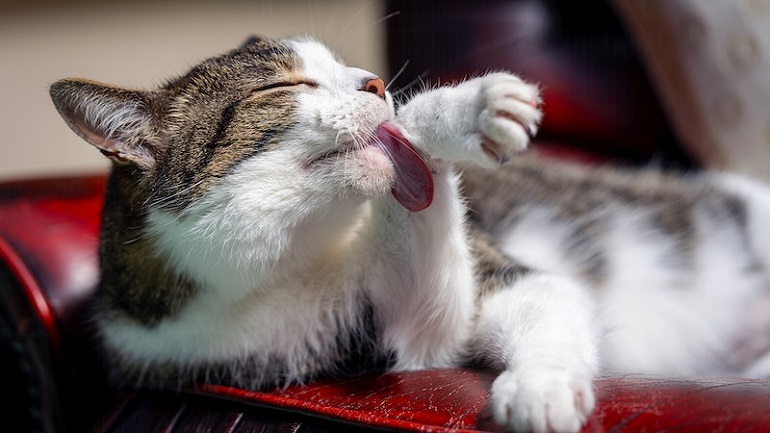
Cat self-grooming on a red couch. Original public domain image from Flickr
How Long Can A Cat Live :- With continuous progress in feline medicine, nutrition, and overall care, our beloved house cats are now enjoying longer and healthier lives. Ensuring your furry companion reaches their golden years involves a partnership between pet parents and veterinarians, addressing various aspects of a cat’s well-being at each life stage.
If you’ve pondered the question of how long cats live, the answer hinges on the collaborative efforts of pet parents and veterinarians in managing aspects such as nutrition, vaccinations, oral health, and environmental considerations as cats transition through different life phases.
To gain comprehensive insights into the lifespan of cats and how to support them at every stage, read on for a detailed exploration of feline longevity and the essential components of their care.
Indoor cats typically enjoy a lifespan ranging from 12 to 18 years, with some reaching their early 20s. Notably, the oldest reported cat, Creme Puff, defied expectations by living an astounding 38 years.
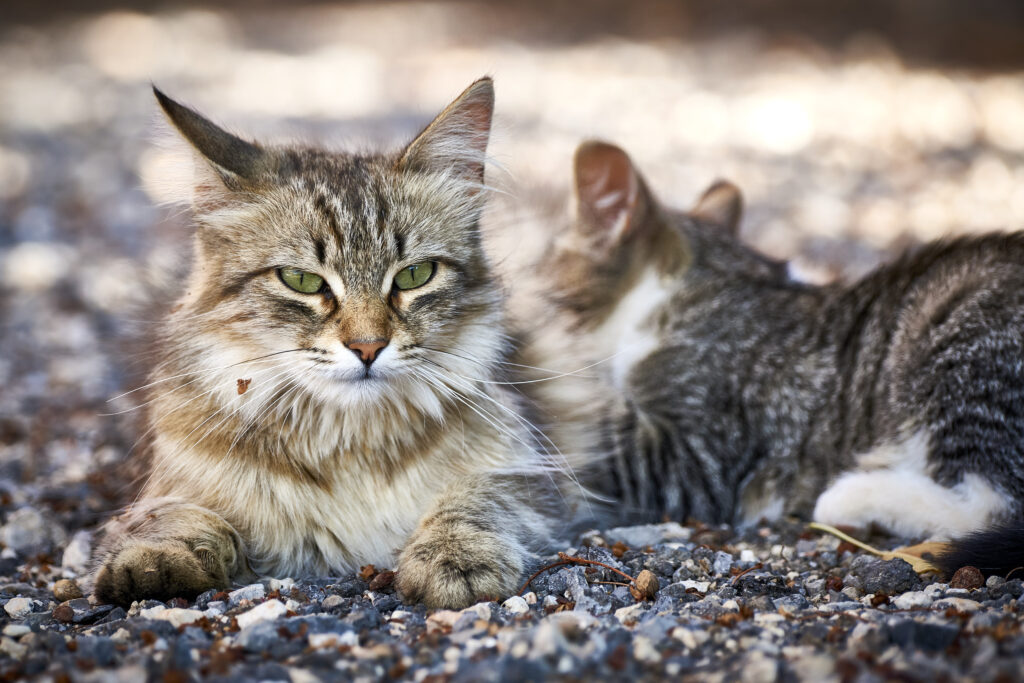
On the other hand, outdoor cats often experience shorter lifespans, primarily due to the increased risk of traumas such as motor vehicle accidents or dog attacks. Additionally, outdoor cats face higher susceptibility to life-threatening viruses like Feline Immunodeficiency Virus (FIV) and Feline Leukemia, transmitted through fighting or contact with infected cats. The contrast in living environments significantly influences the longevity and health of our feline companions.
Average cat lifespan
How Long Can A Cat Live? While the notion of cats having nine lives is a myth, various factors, including diet, healthcare, and environment, significantly influence a cat’s lifespan. Neutering, for instance, plays a pivotal role as it prevents reproductive diseases and reduces the likelihood of cats roaming, contributing to an extended life expectancy.
The duration of a cat’s life is influenced by a multitude of factors, and some domestic cats, with a combination of good care and a bit of luck, can thrive up to 20 years old. Throughout their lives, cats go through six key life stages, providing valuable insights for owners to understand potential health or behavioral issues and keep a vigilant eye on their feline companions.
How Long Can A Cat Live? Lifespans of Indoor vs. Outdoor Cats
How Long Can A Cat Live? A cat’s life expectancy is significantly influenced by its living environment. Indoor cats, residing exclusively within the confines of your home, tend to have approximately double the life expectancy of their outdoor counterparts. While outdoor cats still lead full lives, they face exposure to illnesses, parasites, predators, and vehicular hazards that indoor cats are shielded from. According to Veterinary Medicine, indoor cats typically have an average lifespan of 10–15 years, while outdoor cats may see it reduced to as low as 2–5 years.
For indoor-outdoor cats, enjoying the best of both worlds comes with some risks, albeit at a lesser frequency than exclusively outdoor cats. These felines are more susceptible to abscesses from bites and diseases transmitted by outdoor parasites. Regular checkups, monthly topicals for flea/tick prevention, and ensuring vaccinations are up-to-date can mitigate these risks.
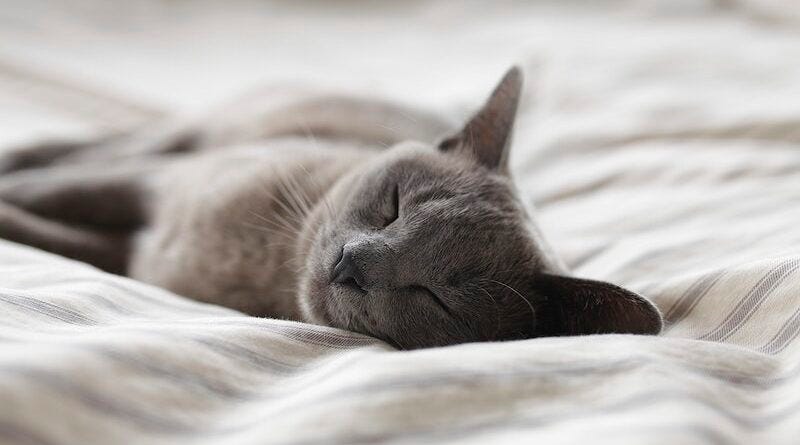
Additionally, it’s worth noting that in certain cases, spayed or neutered cats may enjoy longer lives than their unaltered counterparts. Unaltered cats can be more prone to sexually transmitted diseases and reproductive system conditions, emphasizing the importance of these procedures for overall feline well-being.
How Long Can A Cat Live? Life stages
Kitten (up to six months)
How Long Can A Cat Live ? The early stage of a cat’s life, marked by rapid growth and development, is optimal for introducing them to various experiences. This includes acclimating them to other pets, household noises, gentle handling, and brushing. Familiarizing them with children during this stage is particularly beneficial.
Not only does this period witness a significant growth spurt, but it is also an opportune time to consider neutering your pet. Neutering at this stage helps prevent unwanted litters and contributes to the overall well-being and behavior of your cat as they transition through different life stages.
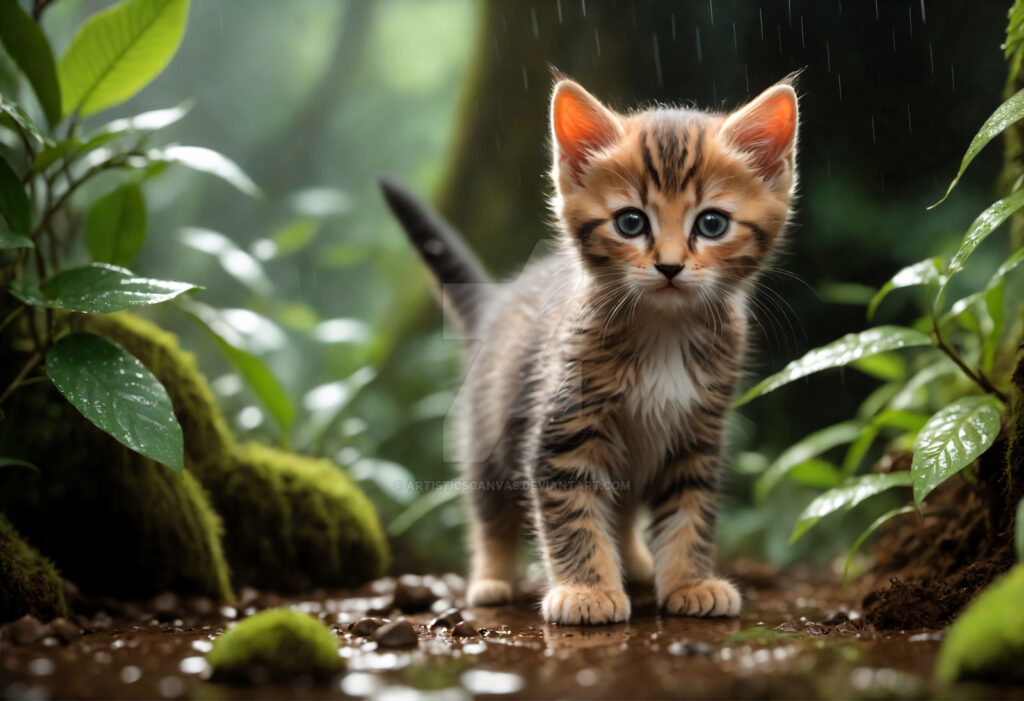
Junior (six months – two years)
During this phase, your cat will attain full size and reach sexual maturity.
Appropriate play is crucial during this time to teach your cat how to engage nicely with people. It’s advisable to avoid rough and tumble games and, instead, utilize toys for interactive play. Engaging with your hands can inadvertently encourage biting and scratching, behaviors that may seem endearing in a kitten but can become problematic as they grow, with bites and scratches becoming more forceful. Establishing positive play habits during this stage contributes to a well-behaved and socially adept adult cat.

Prime (three – six years)
During the prime years of your cat’s life, it’s crucial to maintain their well-being. Despite their youth and health, it remains important to keep them up to date on vaccinations and regular health checks. These preventive measures play a key role in safeguarding your cat from potential diseases or illnesses, ensuring they continue to thrive in their optimal state of health during this phase.
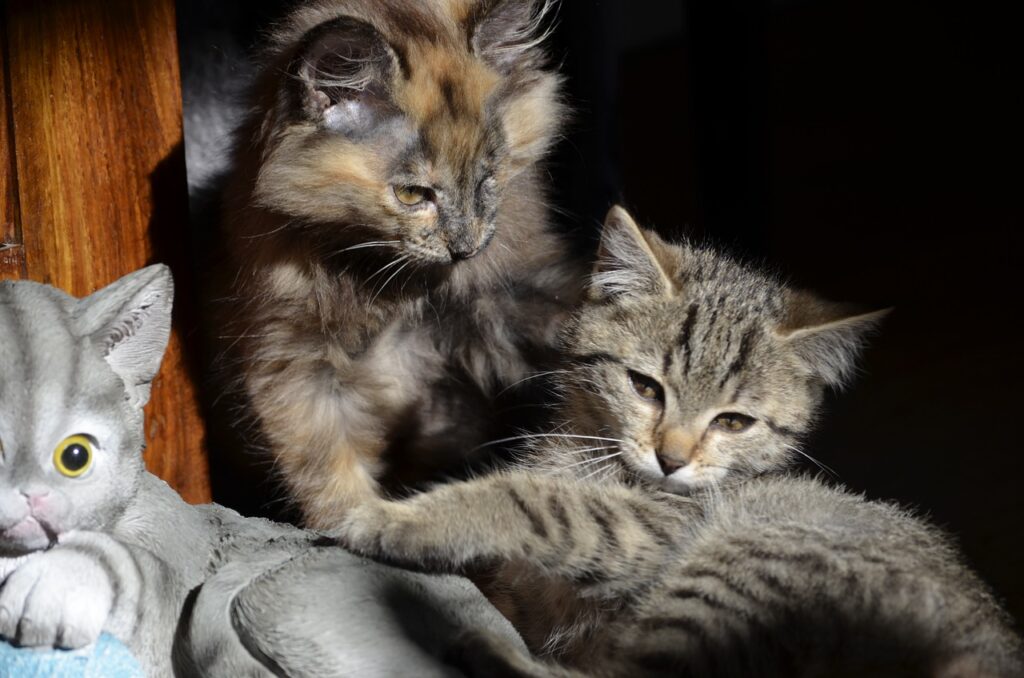
Mature (seven – 10 years)
As your cat reaches this stage, it’s akin to the human equivalent of someone in their mid-forties to mid-fifties. During this period, you might observe a gradual slowing down in your pet, and there’s a higher likelihood of them putting on some weight. It becomes essential to closely monitor their food consumption, ensuring it aligns with their activity level. If you find yourself unsure about your cat’s weight or are uncertain about adjusting their meal portions, consulting with your vet is recommended. They can provide guidance on maintaining your cat’s health and well-being during this phase of their life.
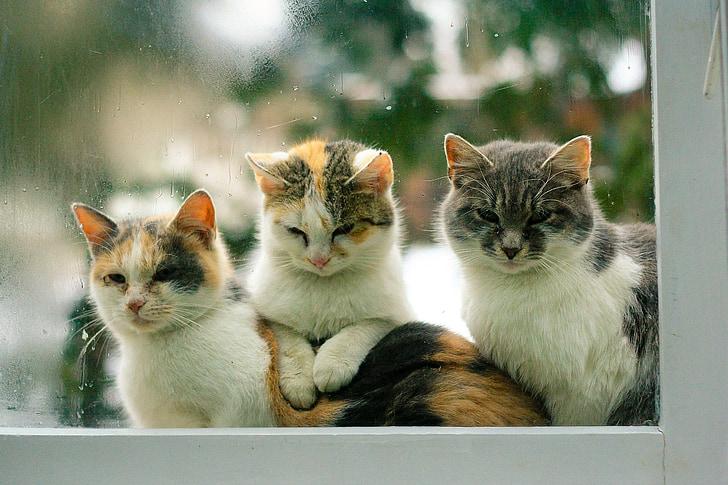
Senior (11 – 14 years)
As your cat enters this phase, it corresponds to the human age of 70 years old. At this point, providing increased mental stimulation becomes crucial to ensure their happiness and well-being.
Enriching your cat’s environment should be an ongoing practice throughout their lives, with particular emphasis during their senior years. Cats tend to relax more during this stage, making mental stimulation even more essential. Introducing food puzzles can be an excellent way to keep your senior cat entertained. These puzzles not only provide mental stimulation but can also encourage activity, particularly beneficial if your cat is slightly overweight, as it engages them in a playful and rewarding manner while addressing their nutritional needs.

Geriatric (15 years and older)
As some fortunate felines reach this age, they may show no signs of slowing down, maintaining their vitality. However, for others, life may transition into the slow lane, with contented days spent snoozing on their favorite pillow.
Monitoring geriatric cats becomes even more critical during this phase. Paying close attention to changes in behavior, including alterations in vocalization and toilet habits, is essential. If anything appears out of the ordinary, scheduling an appointment with your vet is the best course of action to ensure the continued well-being of your senior cat.
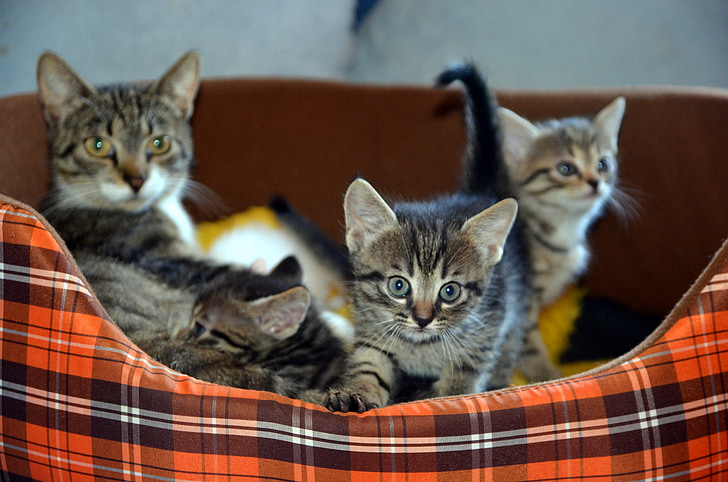
Keeping your feline fit and healthy
How Long Can A Cat Live ? Ensuring your feline companion thrives happily through their golden years involves proactive care and attention.
Observation plays a pivotal role, with your keen eye essential in noting subtle changes in your cat’s behavior or overall well-being. Conducting a weekly mini-physical examination yourself can be beneficial, and if you’re unsure, seeking guidance during your cat’s veterinary visits is recommended. Keep a watchful eye on changes in water intake, appetite, breathing patterns, coat quality, lumps, bumps, coughing, physical abilities, toileting habits, and grooming routines.
Other key aspects of maintaining your senior cat’s health include routine vaccinations, regular veterinary check-ups featuring thorough physical examinations, tailoring their diet to suit their age, ensuring a healthy weight range, engaging in regular moderate
playtime for exercise, and creating a stress-free environment. These collective efforts contribute to the overall well-being and happiness of your cat during their golden years.




